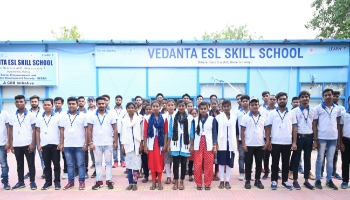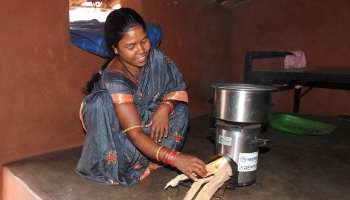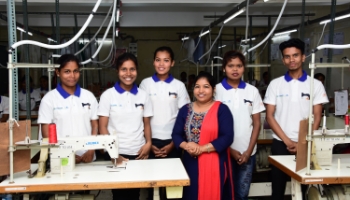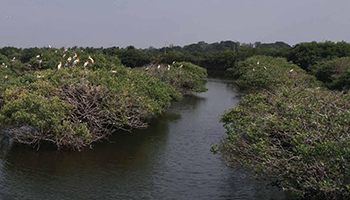Jul 28, 2023 . Read 5 min
Nurturing Nature to Strengthen Livelihoods
Team Vedanta
Prioritising people and the planet is the North Star for organisations striving to deliver purpose beyond their business goals. These three Ps – People, Planet and Purpose, are also at the heart of the Environmental, Social and Governance (ESG) commitment established by Cairn Oil & Gas. Today, on July 28, as we mark the World Nature Conservation Day under the theme, ‘Forests and Livelihoods – Sustaining People and Planet’, we must reiterate the importance of nurturing and building natural ecosystems to create meaningful value for the communities we serve.
JP Hamish Kimmins at the Department of Forest Sciences, University of British Columbia, highlights this with his very pertinent observation that 'forestry is, first and foremost, about people. Forestry must balance the short-term needs of today's human population, the anticipated needs of future generations, and the maintenance of long-term forest ecosystems.’ With forests increasingly under threat, impacting billions of people as well as an enormous number of plant and animal species, the importance of nature-based solutions – several of them serving as natural carbon sinks – has also gained prominence, especially with the challenges of climate change facing humanity.
As an organisation committed to the sustainable development of communities, Cairn, under the aegis of the Vedanta Group and the Anil Agarwal Foundation, has prioritised nature conservation across its operational areas. With the goal of achieving No Net Loss of biodiversity and ensuring a Net Positive Impact, Cairn has developed a critical social impact initiative focusing on enhancing the population of identified indigenous and threatened or ecologically sensitive floral species.
These are also aligned with the goals of the Kunming-Montreal Global Biodiversity Framework which aims to achieve a remarkable transformation in our society’s relationship with biodiversity by the end of this decade by implementing broad-based actions.
Recognising the suspected loss of 40% of India’s mangrove cover over the last century, Cairn has planted ~279 acres of mangroves along the coasts of the Bay of Bengal and the Arabian Sea, facilitating the survival and nesting of Fishing Cat and Olive Ridley Turtles, as well as sequestering over 42,687 tonnes of carbon dioxide in Ravva, Suvali and Rajasthan operations.
One compelling initiative that will have a long-term impact while celebrating the spirit of World Nature Conservation Day is the revival of Khejri (Prosopis cineraria) in the Thar desert through a dedicated project which aims to plant more than 15,000 saplings by 2025. Khejri – the state tree of Rajasthan, has deep-rooted significance in people’s lives and culture in the Thar region. Perceived as a ‘kalpavriksha’, it had also inspired the first Chipko movement in the state, emphasising its importance in indigenous nature conservation initiatives.
Over the years, due to urbanization, industrialization, deep ploughing using tractors and modern irrigation systems, irreversible changes have impacted the local ecosystem which has caused the introduction of invasive species and harmful pests. There was also a considerable decrease in groundwater levels, causing the number of Khejri trees to drop to less than 35% in the 12 arid districts of the Thar region.
To revitalise this lost resource, Cairn sourced an advanced variety of this tree – Thar Shobha –which is high yielding and of better quality. This was sourced from the Central Institute of Arid Horticulture, Bikaner, and more than 5,000 saplings were planted or distributed to community farmers across the Rajasthan block. We also planned the in-house development of the variety by grafting, in partnership with the community and as a part of the social forestry programme.
Since flagging off in 2022 at the Chittar Ka Par village in Barmer, the project has made a significant impact by nurturing numerous animal species and serving as a natural habitat for birds. The tree is used as a nutritious fodder stock for livestock and helps in increasing the milk yield of cattle. Being a nitrogen-fixing tree, Khejri has enhanced soil quality and nutrition of crop yield, while its pods are used as a protein-rich source of vegetable.
This Nature Conservation Day provides another opportunity to delve into the successes of this project in preserving nature while strengthening livelihoods. Initiatives such as this will serve as an inspiration for us in our onward journey as we continue to harness our collective energy to promote a greener world that delivers triple-bottom benefits – a healthy planet, prosperous people, and a strong purpose.










